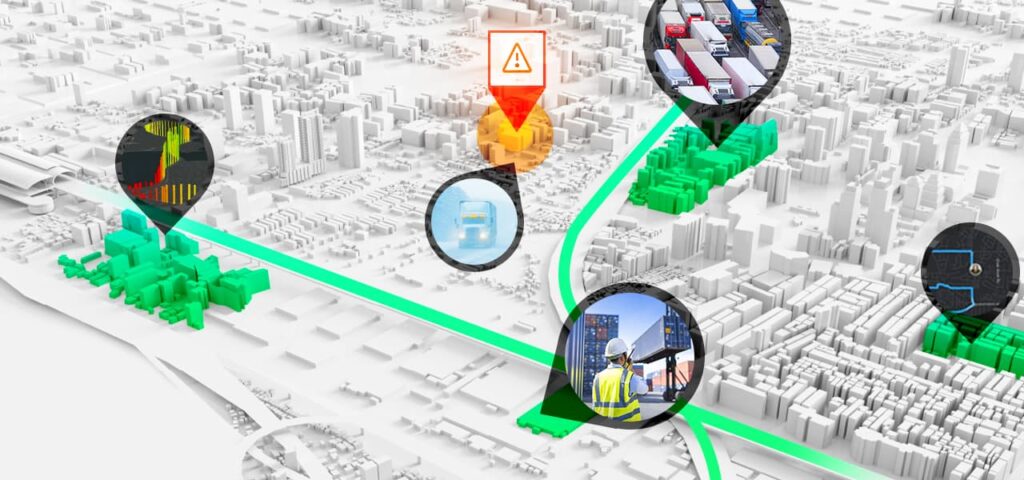Online privacy has been making headlines again recently. No matter where we turn, it seems like companies are finding new ways to track us and our online activities. No matter how many cookies you block, or ad blockers you install, it seems businesses keep finding you. One of the more recent ways is using the location services on your smartphone and its internal sensors to track your movements.
In this article, we’ll take a look at what location tracking is and how it infringes on your privacy. We’ll also look at a few ways you can protect your privacy, such as using a proxy service and others. Keep reading to find out how to take back your privacy.
Table of Contents
What Is Location Tracking?
Location tracking is the technology used to track your mobile device’s location using special sensors built into your device along with GPS. This technology has many benefits. Think of when you use the navigation system on your phone to help you when you get lost or to determine the safest route to your destination. Have you ever used the ‘Find my Phone function after losing your phone? That’s possible because of location tracking.
However, more recently, companies have also started using the location settings on your device to track you. Quite a number of apps installed on your phone might have this feature enabled without you realizing it. These apps then have access to your location at any time. They can use it to see what shops you visit, restaurants you frequent, where you buy your groceries, and even where you spend the night. Isn’t that a scary thought and a major invasion of your privacy?
How Are You Being Tracked?
The most popular way that you’re being tracked is through the apps you have installed on your phone. Even some which come pre-installed on your device, such as the App Store. After installing a new app, you’ll frequently receive a slew of permissions to accept before you can start using the app. Many of us just accept these without reading the fine print or giving it an extra thought. This is where the issue comes in. Hidden amongst these permissions, you might just give the app access to your location. Once you’ve done this, the app can start using the sensors and GPS on your device to track your location.
It’s not only apps that you download that can track you. There are even certain native apps that are pre-installed on your smartphone that automatically have location settings enabled. You might’ve unknowingly accepted this when you accepted the terms and conditions of your operating system when you first activated your device. As such, these apps could be running in the background, tracking your location without you even knowing.
Ways to Protect Your Privacy
There are a few different ways that you can protect your privacy and stop apps from tracking your location. However, a multi-pronged approach is usually the best course of action to ensure your anonymity when it comes to privacy concerns.
Use a Proxy Service
A proxy service is useful for hiding your location. When connecting to a proxy, your IP address and, thus, your location are completely hidden behind the proxy. This makes it extremely difficult for you to be tracked. In the case of your mobile device (Android users), an Android proxy is the best option as they’ve been specifically designed for these devices and protect your location when using your smartphone.
Change Location Tracking Settings
Your phone’s operating system might also be tracking you. You can disable this. However, it’s not an intuitive feature and is often buried deep in your phone’s privacy settings. These features are usually labelled as ‘Frequent Locations’ or similar. This feature records where you are and even how long you’ve been there. It can even identify where you work and where you live based on how frequently, at what times, and how long you stay in these locations. You can disable this feature from within your phone’s privacy settings.
Remove App Permissions
You might have given apps permission to access your location without realizing it. A photo-editing app, for example, doesn’t need to know your location. Alternatively, a navigation app requires this information to work. You should go through your apps and disable any location settings that aren’t required. For those few apps that do need this feature to function, you can set the permissions so that it only uses location data when the app is active. By doing this, you can rest assured that the app isn’t tracking you in the background when you don’t want it to.
Final Thoughts
Location tracking isn’t new technology, but we’re beginning to realize its significant impact on our privacy. With apps tracking your location and knowing where you spend most of your time, nothing is private. To protect your privacy and keep it from being tracked, you can use a proxy service, along with disabling location features within apps and even your phone itself.
